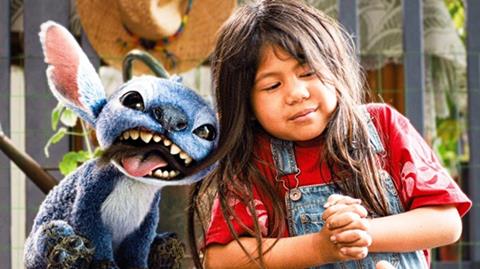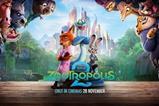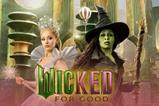The new Lilo and Stitch movie provides an opportunity for Christian parents to begin to talk to their children about grief and loss - Charles Merritt explains

Film: Lilo and Stitch
Age rating: U
Runtime: 108 minutes
See this if you liked: Lilo and Stitch (2002)
Overview:
When a girl wishes upon a ‘shooting star’ for a best friend, she gets more than she bargained for in the form of a lovably mischievous alien.
What I liked:
The film opens with Stitch being introduced to the high council before being exiled to Earth as an abomination. He was brilliantly realised in CGI, and he genuinely felt as though he had leaped from the animation into our world. Stitch was very much the comic relief of the movie, with his mischievous antics causing an extra layer of complications for his new ‘owners’ after being mistakenly adopted as a dog.
Live-action remakes often change things and add unnecessary plotlines—this one is no different. However, by focusing more on Lilo and her sister, Nani, this version of the film really changed who I connected with. Their relationship was actually the highlight of the film for me, as they tried to navigate life without their parents and learn to adapt to new roles and responsibilities in the family. I found tears rolling down my cheeks a couple of times, which I was not expecting at all. Both Maia Kealoha (as Lilo) and Sydney Agudong (as Nani) do a brilliant job with their characters, and the sisterly bond between them is heartbreakingly beautiful to watch—even in the moments where they’re frustrated with one another.
What I didn’t like:
The film perhaps dwelled too long on the sister dynamic, and the four-year-old I was with started to get a little bored toward the end. So, even though it was a highlight for me, I can see that for young audiences the movie might not be fast-paced enough.
For a movie called Lilo and Stitch, Stitch felt a little absent in this version. Not only is this bizarre—given that people absolutely love the fluffy blue creature and he’s the reason many are going to see this movie—but it also means that much of the heart and messaging of the original movie is missing.
There is no ‘Ugly Duckling’ storyline, nor even Jumba realising that his creation designed to destroy is capable of love. Both of their character arcs are either rushed or completely changed from their animated counterparts.
Notes for parents:
There is a distressing scene toward the end of the film where it looks like Stitch might not make it. (I don’t feel as though it’s a spoiler to say he doesn’t die—Disney isn’t going to let their million-making merchandise hero go down that easily…)
Faith thoughts:
I was expecting to be able to dive into a deep discussion about whether something designed for evil could be used for good, but since this version of the movie didn’t really explore that theme, I’ve had to change course.
Perhaps what this version focuses on instead is circumstance and how important relationships are in raising children.
This may feel like familiar territory to my Thunderbolts review (both movies from the same studio and releasing in the same month), but let’s find a new angle.
Read more:
Finding peace after loss: Trusting God while supporting your child’s grief
Thunderbolts* – Redemption in the face of darkness
A creative world with no imagination – A Minecraft Movie fails to craft a story
Snow White – A kingdom of love, not fear
How do we support those who have lost their parents?
At first glance, Lilo is a naughty kid who is mean to those around her and disrespectful to the authority figures in her life. But look closer, and you’ll see her behaviour stems from a tragic event in which she loses both her parents.
Nani has sacrificed her future in order to look after her little sister—trying to raise a six-year-old while working hard to earn enough for them to survive. She gets little thanks from her younger sister (“I like you better as a sister than as a mom”) and is under a lot of pressure from her social worker to get on top of things if she wants Lilo to be able to stay with her.
Thankfully, Nani is not alone in her unexpected position of parenthood. She has support from a kind neighbour who looks out for both Lilo and Nani.
We can’t be afraid of bringing up those difficult conversations with children who have lost loved ones
When a child is bereaved of a parent or a close family member, our instincts kick in and we smother them with support. Then life moves on, and other people need our help. But from personal experience, I know that grief doesn’t really hit until much later after the initial event.
In my five years as a children’s worker at a church, we had a tragic number of fathers and mothers pass away suddenly. The church community were quick to support for the first month or so, but inevitably, as the next tragedy came along, it was easy to get distracted. Whilst working as a schools worker, I mentored several young people who had lost siblings at a young age. For these young people, it had been a couple of years since their loss, but the effects had only just begun to surface.
God cares about the orphans and those who mourn—there are countless Bible verses to prove it. If I were to include them all, I’d reach my word limit for this review in no time…
We can’t be afraid of bringing up those difficult conversations with children who have lost loved ones. That doesn’t mean that every time we see them, we use it as a casual icebreaker, but we do need to give them space to reflect on their feelings. Not just when Mother’s Day or Father’s Day rolls around, but by being aware of other anniversaries—such as the day their loved one passed away or their birthday.
We can never replace those they have lost, but we can be there for them and provide them with another role model—someone who helps keep the memory of their parents alive.
For more on how to support young people and children with grief, I’d highly recommend looking at the Winston’s Wish website for some great ideas and resources.



































